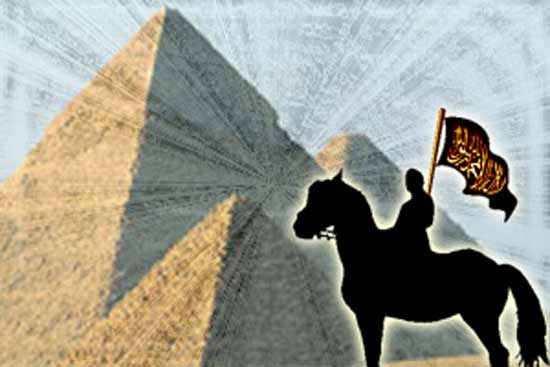The Story of Amr ibn al-As (May Allah Be Pleased with Him) with the People of Egypt: Transforming Beliefs and Demonstrating Modern Leadership Skills (Emotional Intelligence)
When Egypt was conquered by Amr ibn al-As (May Allah Be Pleased with Him), he faced a significant challenge related to the local beliefs about the Nile River. The Egyptians had an ancient and erroneous belief that the Nile would only flow if a virgin girl was sacrificed. This story highlights how Amr ibn al-As addressed and changed these beliefs with skill and wisdom.
When Amr ibn al-As (May Allah Be Pleased with Him) entered Egypt in the month of Boona (June), the people approached him, explaining that the Nile would not flow unless they sacrificed a virgin girl adorned with the finest jewelry and clothes. Amr firmly rejected this practice, stating, “Islam abolishes what came before it.”
Despite Amr’s refusal, the Nile did not flow during the months of Boona, Abib, and Mesra, causing the Egyptians to worry about their livelihoods. Amr wrote to Caliph Omar ibn al-Khattab (May Allah Be Pleased with Him), explaining the situation. Omar responded, agreeing that “Islam abolishes what came before it,” and sent a note with a message for the Nile. The note read: “From the servant of Allah, the Commander of the Faithful, to the Nile of Egypt. If you flow by your own will, do not flow. But if the One and Omnipotent Allah make you flow, then we ask Allah to make you flow.” Amr threw the note into the Nile, and the next morning, the Nile rose 16 cubits in one night, ending the harmful tradition forever.
Reflections and Leadership Skills:
Amr ibn al-As’s Persuasive Skills:
– Using Religious Arguments:* Amr employed religious reasoning to convince the Egyptians that Islam prohibits such practices.
– Communicating with Influential Figures: By involving Caliph Umar ibn al-Khattab (May Allah Be Pleased with Him), Amr demonstrated unity and authority in the Islamic decision.
– Presenting Alternative Solutions: With Umar’s guidance, Amr provided a faith-based alternative that focused on Allah’s power to change circumstances.
Omar ibn al-Khattab’s Emotional Intelligence:
– Omar’s message was simple yet powerful, reflecting deep faith in Allah and instilling hope and confidence in the people.
Conclusion:
This story illustrates the power of leadership to transform harmful beliefs through effective communication and intelligent persuasion. Today, the Egyptians’ understanding has evolved, relying on science and modern values, reflecting societal progress. The story demonstrates how leaders can achieve positive, lasting change by combining wisdom, faith, and effective communication.
Dr. Eman Abo ElMahasen
March 25, 2024
For a more detailed version of this topics, please visit my website
Who is the most emotionally intelligent person since God created humans





